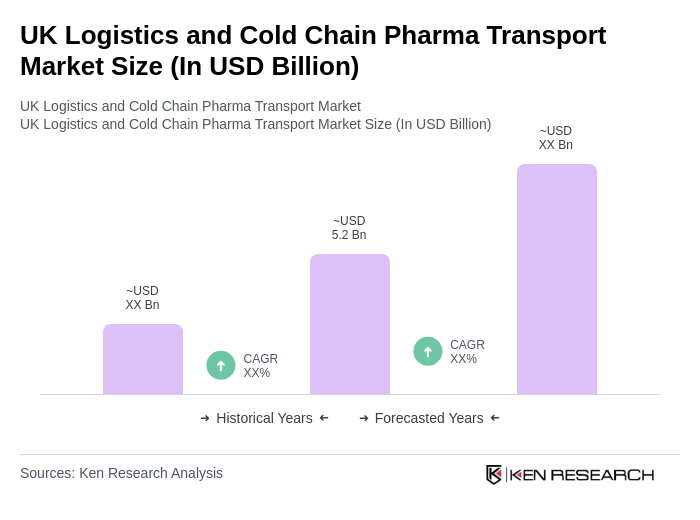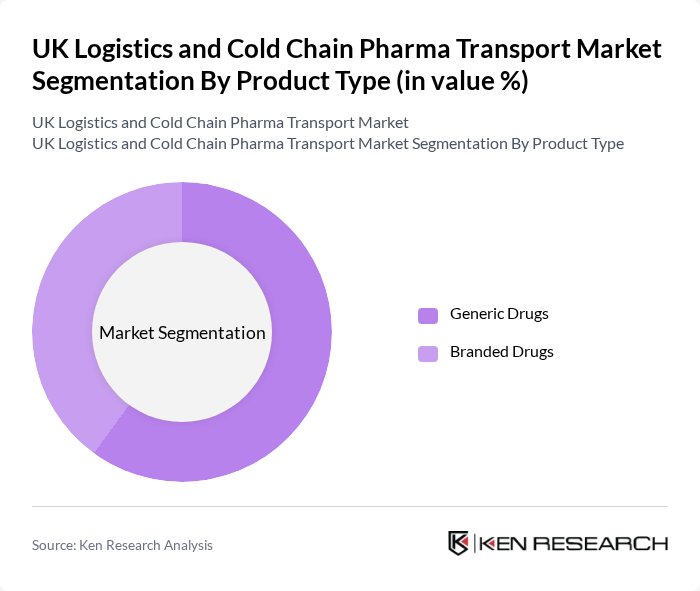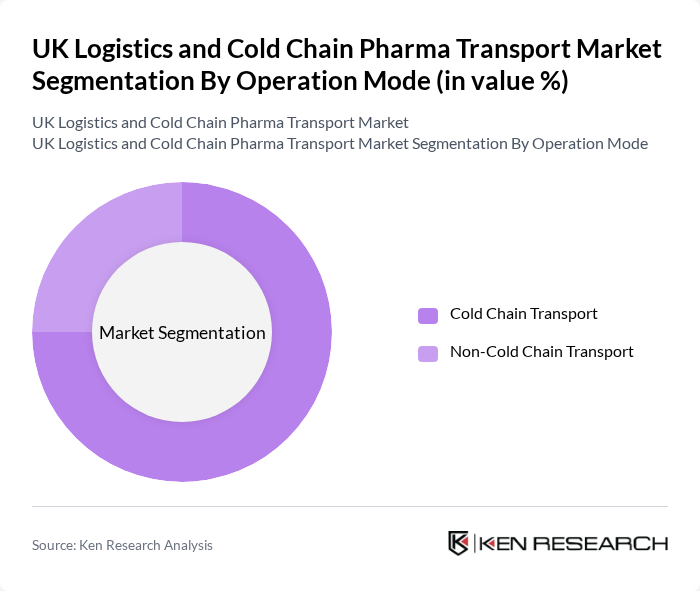Region:Europe
Author(s):Shubham
Product Code:KRAA3598
Pages:90
Published On:September 2025

By Product Type:

The product type segmentation includes Generic Drugs and Branded Drugs. The Generic Drugs segment continues to dominate the market due to their cost-effectiveness and increasing acceptance among healthcare providers and patients. As healthcare costs rise and the NHS emphasizes value-based procurement, demand for generic alternatives has surged, resulting in a significant increase in their distribution through cold chain logistics. Branded Drugs also maintain a substantial market share, driven by the need for specialized handling and transportation of high-value pharmaceuticals, including biologics and specialty medicines that require strict temperature control .
By Operation Mode:

The operation mode segmentation consists of Cold Chain Transport and Non-Cold Chain Transport. Cold Chain Transport is the leading segment, driven by the necessity of maintaining specific temperature ranges for sensitive pharmaceuticals, particularly vaccines, biologics, and specialty drugs. The focus on patient safety, regulatory compliance, and product efficacy has led to heightened demand for cold chain solutions. Non-Cold Chain Transport, while significant, is primarily used for products that do not require stringent temperature controls, thus holding a smaller share of the market .
The UK Logistics and Cold Chain Pharma Transport Market is characterized by a dynamic mix of regional and international players. Leading participants such as DHL Supply Chain, Kuehne + Nagel, UPS Healthcare, DB Schenker, XPO Logistics, FedEx, Geodis, Movianto, World Courier, DSV, Cardinal Health, Agility Logistics, Kintetsu World Express, Yusen Logistics, CDL Logistics Group, Vision Logistics, Biocair, Polar Speed, PHSE, Alloga UK contribute to innovation, geographic expansion, and service delivery in this space.
The UK logistics and cold chain pharma transport market is poised for transformative growth, driven by technological innovations and evolving consumer preferences. As the demand for biopharmaceuticals and e-commerce continues to rise, logistics providers will increasingly adopt advanced tracking technologies and sustainable practices. The focus on real-time data analytics will enhance operational efficiency, while partnerships with technology providers will facilitate the development of more resilient supply chains, ensuring compliance with regulatory standards and improving service delivery.
| Segment | Sub-Segments |
|---|---|
| By Product Type | Generic Drugs Branded Drugs |
| By Operation Mode | Cold Chain Transport Non-Cold Chain Transport |
| By Application | Biopharma Chemical Pharma |
| By Transportation Mode | Roadways Airways Seaways Railways |
| By End-User | Pharmaceutical Manufacturers Distributors and Wholesalers Hospitals and Clinics Research Institutions Others |
| By Packaging Type | Insulated Containers Refrigerated Pallets Temperature-Controlled Boxes Others |
| By Service Type | Full Truck Load (FTL) Less Than Truck Load (LTL) Dedicated Contract Carriage Others |
| By Compliance Type | GDP Compliance ISO Certification Temperature Monitoring Compliance Others |
| By Region | England Scotland Wales Northern Ireland Others |
| Scope Item/Segment | Sample Size | Target Respondent Profiles |
|---|---|---|
| Pharmaceutical Cold Chain Logistics | 120 | Logistics Directors, Supply Chain Managers |
| Temperature-Controlled Transport Services | 80 | Operations Managers, Fleet Supervisors |
| Regulatory Compliance in Pharma Transport | 60 | Compliance Officers, Quality Assurance Managers |
| Pharmaceutical Distribution Networks | 100 | Distribution Managers, Warehouse Operations Heads |
| Cold Chain Technology Solutions | 70 | IT Managers, Technology Officers |
The UK Logistics and Cold Chain Pharma Transport Market is valued at approximately USD 5.2 billion, driven by the increasing demand for temperature-sensitive pharmaceuticals and advancements in logistics technology.